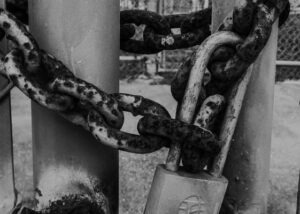Is it Haram to speak out against Muslim leaders? Some people say that this is Haram – is this true?
Quran
Hadith
Islamic Text
بِسْمِ اللَّهِ الرَّحْمَنِ الرَّحِيمِ
In the Name of Allah Most Merciful Most Kind
Short Answer
No, it is not Haram to speak out against Muslim leaders. They are not Prophets, they make mistakes. If these mistakes mislead people, then they must be highlighted. Otherwise, people may misunderstand the Deen and go astray.
Qur’an and Hadith
كُنْتُمْ خَيْرَ أُمَّةٍ أُخْرِجَتْ لِلنَّاسِ تَأْمُرُونَ بِالْمَعْرُوفِ وَتَنْهَوْنَ عَنِ الْمُنْكَرِ وَتُؤْمِنُونَ بِاللَّهِ
You are the best nation brought forth for mankind. You enjoin good, forbid evil and believe in Allah. (Surah Ali Imran, 110).
عَنْ حُذَيْفَةَ بْنِ اليَمَانِ، عَنِ النَّبِيِّ صَلَّى اللَّهُ عَلَيْهِ وَسَلَّمَ قَالَ: وَالَّذِي نَفْسِي بِيَدِهِ لَتَأْمُرُنَّ بِالمَعْرُوفِ وَلَتَنْهَوُنَّ عَنِ المُنْكَرِ أَوْ لَيُوشِكَنَّ اللَّهُ أَنْ يَبْعَثَ عَلَيْكُمْ عِقَابًا مِنْهُ ثُمَّ تَدْعُونَهُ فَلَا يُسْتَجَابُ لَكُمْ
(Sayidina) Hudhayfah ibn al-Yaman narrated that the Prophet ﷺ said: ‘By the One in whose hand is my soul, you will indeed enjoin the good and forbid evil, or Allah will send upon you a punishment from Him. Then you will call upon Him but you will not be answered.’ (Sunan al-Tirmidhi 2169, Hasan).
Both the Ayah and Hadith above are unrestricted. Meaning they apply to leaders and everyone else. Not only is this evident from the texts itself, but the commentaries of authoritative Sunni scholars clarify this point too.
Some Muslims tell others that it is not permitted to point out the faults of Muslim leaders. They say you should simply make Dua. They are either ignorant of the Hadith above or they ignore it. The Hadith has made enjoining good and forbidding evil a prerequisite of Dua being accepted.
Condemning in the heart
عَنْ أُمِّ سَلَمَةَ، زَوْجِ النَّبِيِّ صَلَّى اللهُ عَلَيْهِ وَسَلَّمَ، عَنِ النَّبِيِّ صَلَّى اللهُ عَلَيْهِ وَسَلَّمَ أَنَّهُ قَالَ: إِنَّهُ يُسْتَعْمَلُ عَلَيْكُمْ أُمَرَاءُ، فَتَعْرِفُونَ وَتُنْكِرُونَ، فَمَنْ كَرِهَ فَقَدْ بَرِئَ، وَمَنْ أَنْكَرَ فَقَدْ سَلِمَ، وَلَكِنْ مَنْ رَضِيَ وَتَابَعَ. قَالُوا: يَا رَسُولَ اللهِ، أَلَا نُقَاتِلُهُمْ؟ قَالَ: لَا، مَا صَلَّوْا. أَيْ مَنْ كَرِهَ بِقَلْبِهِ وَأَنْكَرَ بِقَلْبِهِ
(Sayidah) Umm Salamah, wife of the Holy Prophet ﷺ, narrated that he ﷺ said: ‘Amirs will be appointed over you. You will find that which you recognise and that which you reject. The one who hates (their bad deeds) is absolved from blame. The one who condemns will be safe. But the one who approves and follows (is doomed).’ They asked: O Messenger of Allah ﷺ, should we not fight them? He ﷺ replied, ‘No, so long as they pray.’ Meaning: hating in the heart and condemning in the heart. (Sahih Muslim 1854 – 63).
Sometimes the above Hadith is used by those who prohibit speaking against the rulers. They say, the obligation is to dislike their actions in the heart. Firstly, it is important to note that the statement about hating in the heart is considered to be the absolute minimum to fulfil the obligation. Secondly, active condemnation is also mentioned. So in no way is the Hadith restricting disapproval to the heart. This has been clarified by leading scholars of Ahl al-Sunnah.
وقوله: ” فمن كره فقد برئ، ومن أنكر فقد سلم “: أى من معاقبة الله له على الإقرار على المنكر، وبرئ بكراهيته من الرضا والمتابعة. وفيه حجة على لزوم قول الحق وإنكار المنكر. (إِكمَالُ المُعْلِمِ بفَوَائِدِ مُسْلِم)
His ﷺ saying: ‘The one who hates (their bad deeds) is absolved from blame. The one who condemns will be safe.’ Meaning from the punishment of Allah (Most High) for supporting evil. And he will be saved by countering approval and imitation. In it there is proof for the obligation of speaking truth and opposing sin. (Imam Qadi Iyad bin Musa, Sharh Sahih Muslim).
Hadith of preventing evil with speech
A well-known Hadith in Sahih Muslim (49-78) commands us to prevent sin and evil with the Hand and if that is not possible then with the tongue. Meaning with speech. When this is cited to brothers who oppose speaking out against leaders, they say it does not include leaders.
There are two major concerns with their approach. Firstly, to restrict a Quranic verse or Hadith narration, evidence is required. The Hadith is Mutlaq (general). To render it Muqayyad (restricted) evidence would be required. Secondly, their explanation opposes that of the great Sahabi, Sayidina Abu Saeed al-Khudri.
عَنْ أَبِي سَعِيدٍ الْخُدْرِيِّ، قَالَ: أَخْرَجَ مَرْوَانُ الْمِنْبَرَ فِي يَوْمِ عِيدٍ، فَبَدَأَ بِالْخُطْبَةِ قَبْلَ الصَّلَاةِ، فَقَامَ رَجُلٌ فَقَالَ: يَا مَرْوَانُ، خَالَفْتَ السُّنَّةَ، أَخْرَجْتَ الْمِنْبَرَ فِي يَوْمِ عِيدٍ، وَلَمْ يَكُنْ يُخْرَجُ فِيهِ، وَبَدَأْتَ بِالْخُطْبَةِ قَبْلَ الصَّلَاةِ، فَقَالَ أَبُو سَعِيدٍ الْخُدْرِيِّ: مَنْ هَذَا؟ قَالُوا: فُلَانُ بْنُ فُلَانٍ، فَقَالَ: أَمَّا هَذَا فَقَدْ قَضَى مَا عَلَيْهِ، سَمِعْتُ رَسُولَ اللَّهِ صَلَّى اللهُ عَلَيْهِ وَسَلَّمَ يَقُولُ: مَنْ رَأَى مُنْكَرًا فَاسْتَطَاعَ أَنْ يُغَيِّرَهُ بِيَدِهِ فَلْيُغَيِّرْهُ بِيَدِهِ، فَإِنْ لَمْ يَسْتَطِعْ فَبِلِسَانِهِ، فَإِنْ لَمْ يَسْتَطِعْ فَبِقَلْبِهِ، وَذَلِكَ أَضْعَفُ الْإِيمَانِ
Abu Saeed al-Khudri (May Allah Most High be pleased with him) said: Marwan took out the pulpit on the day of Eid. He began with the sermon prior to the prayer. A man stood and said: O Marwan, you have opposed the Sunnah. You took out the pulpit on the day of Eid, when it was not previously taken out and you began to deliver the sermon before prayer.
Abu Saeed al-Khudri said: Who is this? They said: So-and-so, son of so-and-so. He said: As for this man, he has fulfilled what was upon him. I heard the Messenger of Allah ﷺ say, ‘Whoever sees an evil and is able to change it with his hand, let him change it with his hand. If he is not able, then with his tongue. If he is unable, then with his heart. And that is the weakest of faith.’ (Sunan Abi Dawood 1140, Sahih).
This Hadith is also in Sahih Muslim (49 – 78). However, it is slightly less detailed. Sayidina Abu Saeed al-Khudri applied the Hadith of preventing sin with the tongue to leaders. Yet, the brothers who claim it is not applicable to leaders also claim to follow the Salaf. Don’t they consider a Sahaabi to be from the Salaf?
Hadith of Sayidina Usamah
عَنْ أُسَامَةَ بْنِ زَيْدٍ، قَالَ: قِيلَ لَهُ: أَلَا تَدْخُلُ عَلَى عُثْمَانَ فَتُكَلِّمَهُ؟ فَقَالَ: أَتَرَوْنَ أَنِّي لَا أُكَلِّمُهُ إِلَّا أُسْمِعُكُمْ؟ وَاللهِ لَقَدْ كَلَّمْتُهُ فِيمَا بَيْنِي وَبَيْنَهُ، مَا دُونَ أَنْ أَفْتَتِحَ أَمْرًا لَا أُحِبُّ أَنْ أَكُونَ أَوَّلَ مَنْ فَتَحَهُ
It was said to (Sayidina) Usamah bin Zaid, will you not enter upon Uthman and talk to him? He said, do you believe that I have not spoken to him because I have not made you hear it? By Allah. I have spoken to him privately. Without innovating a matter that I do not want to be the first in. (Sahih Muslim, 2989 – 51).
Another argument put forward by those who consider it Haram to speak against leaders is the Hadith of Saidina Usamah bin Zayd (above). They say that he did not deem it permissible to speak against leaders publicly. This explanation contradicts what major scholars of Ahl al-Sunnah have said regarding the narration.
وَقَالَ عِيَاضٌ مُرَادُ أُسَامَةَ أَنَّهُ لَا يَفْتَحُ بَابَ الْمُجَاهَرَةِ بِالنَّكِيرِ عَلَى الْإِمَامِ لِمَا يَخْشَى مِنْ عَاقِبَةِ ذَلِكَ بَلْ يَتَلَطَّفُ بِهِ وَيَنْصَحُهُ سِرًّا فَذَلِكَ أَجْدَرُ بِالْقَبُولِ. (فتح الباري شرح صحيح البخاري)
(Qadi) Iyaad said: (Sayidina) Usamah meant that he does not want to open the door of public rebuke of the imam. This was due to fear regarding the consequence of it. Rather he should prefer to be kind to him and advise him. This is more likely to be accepted. (Imam Ibn Hajr al-Asqalaani, Fath al-Bari).
In the Nass above we find Imam Ibn Hajr quoting Qadi Iyad. He did not state that it is prohibited to speak publicly against a leader. Rather he expressed that private advice is more likely to be accepted. This is beyond dispute. Whenever one has the option of taking a more beneficial approach then that must be observed.
(أَفْتَتِحَ أمرا لا أحب أَنْ أَكُونَ أَوَّلَ مَنْ أَفْتَتَحَهُ) يَعْنِي الْمُجَاهَرَةُ بِالْإِنْكَارِ عَلَى الْأُمَرَاءِ فِي الْمَلَأِ كَمَا جَرَى لِقَتَلَةِ عُثْمَانَ رَضِيَ اللَّهُ عَنْهُ. وَفِيهِ الْأَدَبُ مَعَ الْأُمَرَاءِ وَاللُّطْفُ بِهِمْ وَوَعْظُهُمْ سِرًّا وَتَبْلِيغُهُمْ مَا يَقُولُ النَّاسُ فِيهِمْ لِيَنْكَفُّوا عَنْهُ وَهَذَا كله اذا أمكن ذَلِكَ فَإِنْ لَمْ يُمْكِنِ الْوَعْظُ سِرًّا وَالْإِنْكَارُ فَلْيَفْعَلْهُ عَلَانِيَةً لِئَلَّا يَضِيعَ أَصْلُ الْحَقِّ. (المنهاج شرح صحيح مسلم بن الحجاج)
(Without innovating a matter that I do not want to be the first in). Meaning, publicly rebuking leaders. As was done by the murderers of (Sayidina) Uthman (May Allah Most High be pleased with him).
It teaches etiquette and kindness towards leaders. Exhorting them privately and informing them of people’s concerns regarding them. So that they may refrain from it (error). This is the case if possible. If it is not possible to exhort in private, then make it public so that the truth is not lost. (Imam Abu Zakariyah al-Nawawi, Sharh Sahih Muslim).
Imam al-Nawawi confirms that speaking in private is best wen possible. However, he explains that one is required to speak publicly when that is not possible. In the following Nass Imam al-Ayni delves into more detail. He narrates from Imam al-Tabari that the view of Sayidina Umar and Ubayy bin Ka’b (May Allah Almighty be pleased with them) was the obligation of publicly refuting leaders.
فِيهِ الْأَدَب مَعَ الْأُمَرَاء واللطف بهم ووعظهم سرا وتبليغهم قَول النَّاس فيهم ليكفوا عَنهُ هَذَا كُله إِذا أمكن فَإِن لم يُمكن الْوَعْظ سرا فليجعله عَلَانيَة لِئَلَّا يضيع الْحق لما روى طَارق بن شهَاب قَالَ قَالَ رَسُول الله – صَلَّى اللَّهُ عَلَيْهِ وَسَلَّم َ – ” أفضل الْجِهَاد كلمة حق عِنْد سُلْطَان جَائِر ” وَأخرجه التِّرْمِذِيّ من حَدِيث أبي سعيد بِإِسْنَاد حسن قَالَ الطَّبَرِيّ مَعْنَاهُ إِذا أَمن على نَفسه أَو أَن يلْحقهُ من الْبلَاء مَا لَا قبل لَهُ بِهِ رُوِيَ ذَلِك عَن ابْن مَسْعُود وَحُذَيْفَة وَهُوَ مَذْهَب أُسَامَة وَقَالَ آخَرُونَ الْوَاجِب على من رأى مُنْكرا من ذِي سُلْطَان أَن يُنكره عَلَانيَة كَيفَ أمكنه رُوِيَ ذَلِك عَن عمر وَأبي بن كَعْب رَضِي الله تَعَالَى عَنْهُمَا وَقَالَ آخَرُونَ الْوَاجِب أَن يُنكر بِقَلْبِه. (عمدة القاري شرح صحيح البخاري)
It teaches etiquette and kindness towards leaders. Exhorting them privately and informing them of people’s concerns regarding them. So that they may refrain from it (error). This is the case if possible. If it is not possible to exhort in private, then make it public so that the truth is not lost. Due to the narration of Tariq bin Shihab. He said: The Messenger of Allah ﷺ said, ‘The best jihad is a word of truth before an unjust ruler.’ (Imam) al-Tirmidhi narrated it from (Sayidina) Abu Sa’id with a Hasan chain of transmission.
(Imam) al-Tabari said it means, if he has safety for his life and from oppression that he cannot endure. This was narrated from (Sayidina) Ibn Masud and Hudhayfah, and it was the view of (Sayidina) Usamah. Others said that it is obligatory for anyone who sees a wrong committed from someone in authority to denounce it publicly. Using any possible means. This was narrated from (Sayidina) Umar and Ubayy bin Ka’b (May Allah Almighty be pleased with them). Others said that the obligation is for him to denounce it in his heart. (Imam al-Ayni, Umdatu al-Qari Sharh Saih al-Bukhari).
It is clearly encouraged in Quran and Sunnah to speak out against evil and sin. And there are many examples of the Salaf publicly speaking against leaders. So why do certain brothers oppose it? It seems they misunderstand some Hadith narrations. Therefore, we must advise them to seek the correct interpretation from the works of classical agreed upon scholars of Ahl al-Sunnah.
Concluding Remarks
As we have seen in the explanations of the scholars, if one is fearful for his safety then it is permitted to denounce the evil of a ruler in the heart. However, this should never be the case with everyone. There must always be some people in the Ummah that are unafraid to publicly denounce the rulers.
عَنْ عَبْدِ اللَّهِ بْنِ عَمْرٍو، رَضِيَ اللَّهُ عَنْهُمَا قَالَ: قَالَ رَسُولُ اللَّهِ صَلَّى اللهُ عَلَيْهِ وَسَلَّمَ: إِذَا رَأَيْتُ أُمَّتِي تَهَابُ فَلَا تَقُولُ لِلظَّالِمِ يَا ظَالِمُ فَقَدْ تُودِّعَ مِنْهُمْ
Abdullah bin Amr (May Allah Most High be pleased with them both) narrated that the Messenger of Allah ﷺ said: ‘If you see my nation being afraid, such that they do not say to the oppressor, O oppressor, then bid them farewell.’ (Hakim 7036, Sahih according to Imam al-Dhahabi).
The Hadith above warns of a situation in which no one is brave enough to speak out against the rulers. Therefore, the role of religious scholars and teachers is to encourage such actions. Despite this, we find some religious teachers actively discouraging speaking out against leaders. Rather they deem it prohibited and strictly rebuke those who do it. They go further still and label them Khawarij!
The Quran and Sunnah oblige us to clarify the truth and rebuke falsehood irrespective of the people engaged in it. Irrespective of them being leaders or otherwise. This was the way of the Sahabah and the early Muslims (Salaf). When we fail to fulfil this obligation, then falsehood and misconceptions will spread further in the Ummah.
And Allah Most High Knows Best.
–Answered by Shaykh Noorud-deen Rashid (08.11.23)






